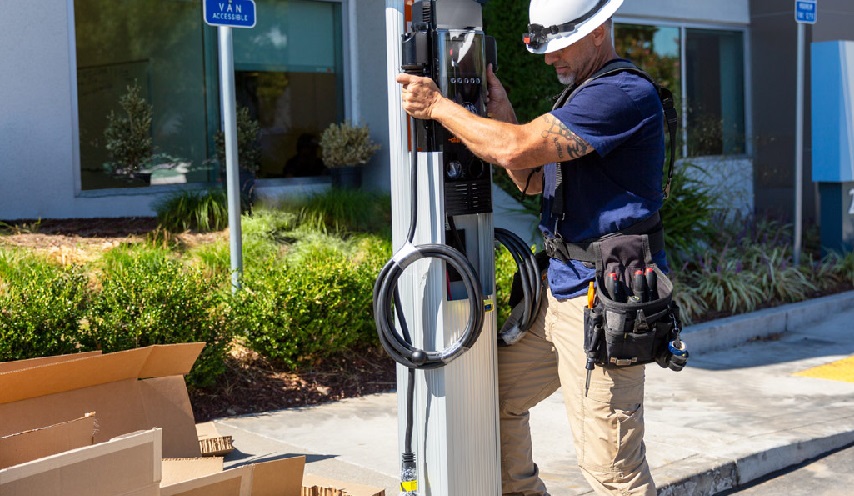Belgium has made a remarkable leap in the development of its ultra-fast charging infrastructure, doubling the number of charge point operators (CPOs) in just one year.
This progress, reflected in a 119% increase in fast-charging stations with power capacities exceeding 100 kilowatts (kW), is partly due to rising demand from electric vehicle (EV) drivers.
It is also driven by government policies aimed at positioning the country as a hub for e-mobility in Europe.
The total number of fast-charging points in the country reached 3,162 in 2024, a figure that continues to rise as more companies join the network’s expansion.
However, despite this growth, five major operators — Allego, IONITY, Tesla, Shell, and TotalEnergies — control half of the nation’s charging points.
This sectoral oligopoly is not unique to Belgium.
Other European nations, such as France and Germany, also experience a concentration of players in the fast-charging market.
This raises concerns about competition and service diversity.
According to the Gireve report, among the new entrants, Electra stands out, having experienced the fastest growth since entering the Belgian market in 2023.
In just one year, it has managed to position itself among the top players in terms of installed charging points and available power, reaching over 95 megawatts (MW) of installed capacity.

Other local players, such as Sparki, are also making significant strides.
Though smaller in terms of “refuelling” stations, Sparki has adopted a differentiated strategy by focusing exclusively on the installation of ultra-fast chargers of 300 kilowatts or more.
This has positioned it as the second-largest operator in terms of available power, allowing it to gain ground swiftly.
Alongside the growth in infrastructure, the usage rates of fast chargers do not yet fully reflect this expansion.
According to Gireve data, the utilisation of direct current (DC) equipment remains relatively low, with a usage rate between 7% and 8%, translating to fewer than two charging sessions per day on average.
This contrasts with the higher frequency of use of alternating current (AC) chargers, whose usage rate is boosted by the longer duration of charging sessions.
AC is also commonly used in everyday situations, such as during shopping or extended stays in shopping centre car parks.
The reasons behind this difference in usage rates may be linked to the cost associated with fast DC charging, which remains significantly higher than AC.
Additionally, fast charging is primarily used for long-distance travel, whereas AC meets users’ needs during routine activities.
Despite this, the usage rates of both AC and DC chargers are showing gradual growth, with an annual increase of approximately 1%.
The Belgian government, aware of the importance of robust infrastructure to support the rise of electric mobility, has set ambitious targets for the development of the fast-charging network.
It is expected that fast chargers will be available every 25 kilometres along the country’s main roads in the coming years, consolidating Belgium’s position among the European leaders in this segment.
Nevertheless, this rapid expansion also raises concerns about the capacity of the electrical grid to absorb the growing demand.
How will Belgium’s grid cope?
Belgium is taking preventive measures to avoid a scenario similar to that of the Netherlands.
In this context, the grid operator Elia has published a capacity map identifying potential bottlenecks in some areas for 2025 and 2032.
David Zenner, head of customer service at Elia, points out that while the grid can meet current demand, some areas may face congestion issues in the future.
Another aspect to consider is the quality of service provided by the different operators.
According to Chargemap’s rankings, a reference platform for EV users, operators such as Fastned, Electra, Allego, TotalEnergies, and IONITY are among the best in Belgium.
This is attributed to the ease of use, the reliability of the chargers, and the effective delivery of the promised power they offer.








